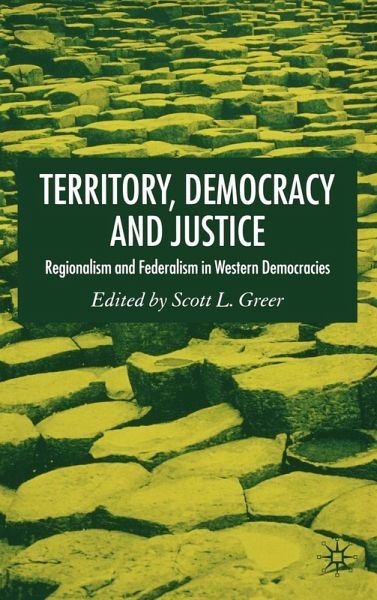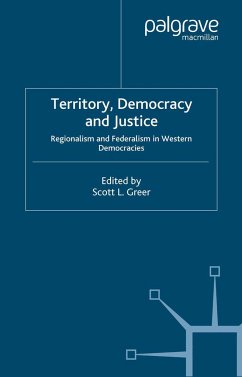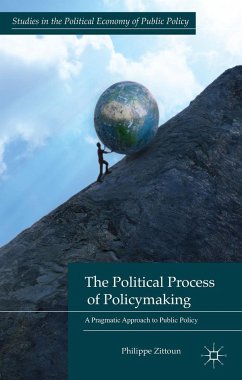
Territory, Democracy and Justice
Federalism and Regionalism in Western Democracies
Herausgegeben: Greer, S.

PAYBACK Punkte
38 °P sammeln!
Territory, Democracy and Justice brings together experts from six countries to ask what territorial decentralization does and what it means for democracy, policymaking and the welfare state. Integrated and international in a fragmented field, the chapters identify the importance and consequences of territorial decentralization. The authors analyze the successes, the generalizable ideas, and the international lessons in the study of comparative territorial politics as well as new directions for research.














